-
Policy‐driven integrated reporting and integrated thinking: A cross‐country analysis Bus. Strategy Environ. (IF 12.5) Pub Date : 2024-11-09 Xinyu Zhao, Mohamed Omran
Drawing upon the institutional approach of legitimacy theory and Hofstede's cultural model, this study (a) examines the improvement of integrated thinking (IT) after applying integrated reporting (IR) policies, (b) compares the policy effects in policy‐driven adoption and voluntary adoption and (c) explores the cross‐country differences from the perspective of culture and policy convergence. We collect
-
Eco‐innovation for circular economy and sustainability performance: Insights and evidence from manufacturing firms Bus. Strategy Environ. (IF 12.5) Pub Date : 2024-11-09 Rafael Mora‐Contreras, Javier Carrillo‐Hermosilla, Giovanni Hernández‐Salazar, Luz Elba Torres‐Guevara, Andrés Mejia‐Villa, Marta Ormazabal
Despite progress in the literature in understanding the relationships between barriers, drivers, and features of eco‐innovations (EIs) to promote the circular economy (CE) and improve companies' sustainability results, the evidence remains limited and diffuse. To address this gap, we investigate the effect of barriers, sources of information, and features of innovations and EIs on manufacturing companies'
-
The influence of complexity, uncertainty, and munificence on long‐term organizational resilience to natural disasters Bus. Strategy Environ. (IF 12.5) Pub Date : 2024-11-09 Federica Gasbarro, Antonio Tencati
The turbulent conditions of the external environment have placed unprecedented pressure on firms, drawing management scholars' attention to organizational resilience. This research aims to study if complexity, uncertainty, and munificence influence organizational resilience in terms of long‐term firm survival. We performed a binary logistic regression using a database of 1,849 Italian joint‐stock firms
-
Hybrid Entrepreneurship and Entrepreneurs’ Well-Being: The Moderating Effect of Role Demands Outside Entrepreneurship Entrepreneurship Theory and Practice (IF 7.8) Pub Date : 2024-11-09 Johanna Kuske, Matthias Schulz, Christian Schwens
Current theorizing on learning during hybrid entrepreneurship is limited in explaining the circumstances under which entrepreneurs’ well-being benefits from a preceding phase in hybrid entrepreneurship. Using existing theory on entrepreneurial learning and role conflict, we argue that interfering demands from roles outside entrepreneurship constrain hybrid entrepreneurs’ ability to transform experiences
-
Issue Information Bus. Strategy Environ. (IF 12.5) Pub Date : 2024-11-08
No abstract is available for this article.
-
Issue Information Bus. Strategy Environ. (IF 12.5) Pub Date : 2024-11-08
No abstract is available for this article.
-
Digitalization for circular economy and operational excellence practices: A paradox theory perspective on performance improvement in manufacturing firms Bus. Strategy Environ. (IF 12.5) Pub Date : 2024-11-07 Anupama Prashar, Atanu Chaudhuri
The present study evaluates how the joint implementation of circular economy (CE) and operational excellence (OE) practices supported by the adoption of industry 4.0 technologies (Internet of Things and Big Data Analytics) influence manufacturing firms' operational performance and environmental sustainability. Drawing from the paradox theory, it also investigates the moderating role of managing paradoxical
-
Green credit policy, technological innovation, and corporate financial performance: Evidence from the energy industry Bus. Strategy Environ. (IF 12.5) Pub Date : 2024-11-07 Kingsley E. Dogah, Presley K. Wesseh, Samuel Adomako
Despite extensive research on the impact of green policies on firm growth and performance, there has been little effort dedicated to understanding the effect of green credit policies on firms.In this article, we fill this gap by investigating the effect of green credit policy on financial performance. Additionally, we examine the moderating role of technological innovation in this relationship. Using
-
Sustainability orientation and post‐entry performance: The role of brand and market‐oriented capabilities Bus. Strategy Environ. (IF 12.5) Pub Date : 2024-11-07 Kwabena Frimpong, Samuel Adomako, Nguyen Phong Nguyen, Obaid Shuridah
The adoption of sustainability orientation (SO) by international new ventures (INVs) has been generally noted to positively influence their post‐entry performance. However, knowledge is lacking on organizational mechanism and firm capabilities which combines with SO to help firms achieve improved post‐entry performance. Consequently, we adopted the natural resource‐based view (NRBV) to explore how
-
Trends in the dynamic evolution of blockchain and circular economy: A literature review and bibliometric analysis Bus. Strategy Environ. (IF 12.5) Pub Date : 2024-11-06 Woon Leong Lin, Ying Yang, Nelvin XeChung Leow, Wai Mun Lim, Pek Chuen Khee, Nick Yip
The intersection of blockchain technology and circular economy (CE) practices holds significant potential for enhancing sustainability, transparency, and efficiency. This study conducts a comprehensive bibliometric analysis to explore the current research landscape in this domain. Key findings indicate a rapid growth in publications, highlighting a burgeoning interest in leveraging blockchain for CE
-
Biodiversity risk and firm performance: Evidence from US firms Bus. Strategy Environ. (IF 12.5) Pub Date : 2024-11-06 Thang Ngoc Bach, Khanh Hoang, Thanh Le
Biodiversity loss is considered as a critical global challenge with significant implications for ecosystems, economies, and societies. While the importance of biodiversity conservation is widely acknowledged, the extent to which biodiversity risk impacts firm performance remains an under‐explored area of research. This paper examines how biodiversity risk affects firm performance using a new measure
-
Environmental photograph use in corporate sustainability reporting: A machine‐supported visual content analysis Bus. Strategy Environ. (IF 12.5) Pub Date : 2024-11-06 Lorenz Fenk
Despite the prevalence of photographs in corporate sustainability reporting, their use is not yet sufficiently understood. To the best of our knowledge, this paper is the first large‐scale study in the field. Introducing a novel machine‐supported approach, we assess environmental photograph utilization based on a sample of 45,228 photographs contained in 1,463 separately disclosed sustainability reports
-
The influence of blockchain technology on circular economy implementation in the automotive sector: From a GMM model to a new machine learning algorithm Bus. Strategy Environ. (IF 12.5) Pub Date : 2024-11-06 Woon Leong Lin, Nelvin Xe Chung Leow, Wai Mun Lim, Ming Kang Ho, Jing Yi Yong, Chuen Khee Pek
This investigation explores the integration of blockchain technology (BCT) with circular economy (CE) principles within the automotive sector, leveraging a dataset from the years 2011 to 2019. Employing advanced analytical techniques, including machine learning models and the system generalized method of moments (GMM), the study meticulously assesses BCT's impact on CE practices over the specified
-
The effect of digitalization on sustainability reporting: The role of sustainability competence, green knowledge integration, and stakeholder pressure Bus. Strategy Environ. (IF 12.5) Pub Date : 2024-11-06 Elias Appiah‐Kubi, Codruța Cornelia Dura, Dorina Niță, Imola Drigă, Ana Preda, Lia Alexandra Baltador
The study was designed to provide an answer to the research question regarding the effect of digitalization on sustainability reporting and to reveal the mechanisms underlying this relationship. The methodology included data collection from 371 small‐ and medium‐sized enterprises (SMEs) originating from Ghana, by using a structured questionnaire. Further on, we employed the structural equation modeling
-
Recycle right: How to decrease recycling contamination with informational point-of-disposal signage J. Acad. Mark. Sci. (IF 9.5) Pub Date : 2024-11-05 Aylin Cakanlar, Megan Hunter, Gergana Y. Nenkov
-
The Taguchi approach to large-scale experimental designs: A powerful and efficient tool for advancing marketing theory and practice J. Acad. Mark. Sci. (IF 9.5) Pub Date : 2024-11-05 Jordan W. Moffett, Patrick Fennell, Colleen M. Harmeling, Daniel Sheehan, Alexander Bleier
-
Triggering employee green activism through green human resource management: The role of green organizational learning and responsible leadership Bus. Strategy Environ. (IF 12.5) Pub Date : 2024-11-05 Muhammad Usman, Muhammad Waheed Akhtar, Nadia Zahoor, Muhammad Aamir Shafiq Khan, Samuel Adomako
Several studies have unveiled that green human resource management (GHRM) positively affects employees' voluntary green behaviors at work. However, the literature has overlooked the influence of GHRM on employee beyond‐work green activism—employees' participation in different environmental campaigns and initiatives and supporting/influencing organizations, environmental groups, and political actions
-
The process supporting the emergence of the environmental innovation capabilities within small businesses: An empirical investigation Bus. Strategy Environ. (IF 12.5) Pub Date : 2024-11-05 Giovanna Ferraro, Renato Passaro, Ivana Quinto, Antonio Thomas
For several years, companies have made strategic changes to align with sustainable development principles by developing eco‐innovations. While research consistently highlights the positive impact of eco‐innovations on organisational performance, the factors driving these initiatives—particularly within small and medium‐sized enterprises (SMEs)—remain less clear. This inconsistency is due to the heterogeneity
-
EXPRESS: To Dispose or Eat? the Impact of Perceived Healthiness on Consumption Decisions for About-to-Expire Foods Journal of Marketing (IF 11.5) Pub Date : 2024-11-05 Jeehye Christine Kim, Young Eun Huh, Brent McFerran
Perceived healthiness of food is generally regarded as a positive attribute in food choices as it positively impacts consumers’ preferences. The current research demonstrates that in contexts where there is a time delay between a food’s production and its consumption (referred to as “about-to-expire” food), strong perceptions of a food’s healthiness can be detrimental. This is because consumers hold
-
EXPRESS: Racial Inequity in Donation-based Crowdfunding Platforms: the Role of Facial Emotional Expressiveness Journal of Marketing (IF 11.5) Pub Date : 2024-11-05 Elham Yazdani, Anindita Chakravarty, Jeffrey Inman
Donation-based crowdfunding platforms often claim to pursue equitable outcomes for all beneficiaries, yet many face criticism for failing to do so across different demographic profiles. In response, platform managers are eager to understand how these inequities emerge and explore solutions to address them. In this research, we show that the degree of facial emotional expressiveness of beneficiaries
-
Becoming More Socially Profit Oriented Journal of Marketing (IF 11.5) Pub Date : 2024-11-05 George S. Day
-
Developing a circular economy framework for e‐commerce packaging materials: A study on behavioural intentions of online consumers Bus. Strategy Environ. (IF 12.5) Pub Date : 2024-11-04 Nitin Ram, Parvez Ahmad, Agnes Toth‐Peter, Rui de Torres de Oliveira, GVRK Acharyulu
The exponential growth of e‐commerce brings the need for sustainable business models to address the negative environmental impacts of packaging. This study used a bibliometric analysis, the theory of planned behaviour and stakeholder theory to explore the behavioural intentions of consumers in adopting a circular economy model for e‐commerce packaging materials. Surveying 362 respondents in the Indian
-
Driving Social Profit: Frontline Insights from an Entrepreneur Committed to Sustainable Innovation Journal of Marketing (IF 11.5) Pub Date : 2024-11-04 Alessandro Benetton
-
Do financial constraints lead to environmental, social and governance controversies? The role of country context Bus. Strategy Environ. (IF 12.5) Pub Date : 2024-11-01 Karen Gloria Vargas‐Santander, Susana Álvarez‐Diez, Samuel Baixauli‐Soler, María Belda‐Ruiz
The term sustainability and environmental, social and governance (ESG) criteria has gained greater importance globally in recent decades. As social and environmental issues increase, firms are advocating the need to be more sustainable. However, in this scenario, corporate controversies still persist, and an analysis of their causes is required. This study focuses on establishing the relationship between
-
When marketplaces fail: How market challenged consumers navigate the marketplace J. Acad. Mark. Sci. (IF 9.5) Pub Date : 2024-10-31 Samantha N. N. Cross, Akon E. Ekpo
-
Creative performance in professional advertising development: The role of ideation templates, consumer insight, and intrinsic motivation J. Acad. Mark. Sci. (IF 9.5) Pub Date : 2024-10-31 Alexander Tevi, John Parker, Scott Koslow, Lawrence Ang
-
Can ESG ratings drive digital innovation in enterprises? Exploring Porter's hypothesis in the digital era Bus. Strategy Environ. (IF 12.5) Pub Date : 2024-10-31 Zhen Wang
The holistic reshaping and advancement of the global economy inherently demand the creation of synergies between digitization and environmentally sustainable development practices. This study pioneers an evaluation of the impact of environmental, social, and governance (ESG) ratings on corporate digital technology innovation, contrasting with existing literature. Using data from A‐share listed firms
-
-
Dealing with regression models’ endogeneity by means of an adjusted estimator for the Gaussian copula approach J. Acad. Mark. Sci. (IF 9.5) Pub Date : 2024-10-30 Benjamin D. Liengaard, Jan-Michael Becker, Mikkel Bennedsen, Phillip Heiler, Luke N. Taylor, Christian M. Ringle
-
User language and cultural product innovation: insights from the global mobile gaming industry J. Int. Bus. Stud. (IF 8.6) Pub Date : 2024-10-29 Pengxiang Zhang, Jingtao Yi, Chao Niu, Eric Yanfei Zhao, Sali Li
-
Does waste disclosure waste? Bus. Strategy Environ. (IF 12.5) Pub Date : 2024-10-30 Min Bai, Yafeng Qin, Avijit Dasgupta
This study investigates the motivations behind firms disclosing their waste production. Analyzing data from S&P 500 companies spanning from 2010 to 2018, we explore the influence of board characteristics on this corporate decision. Our findings reveal that firms with a higher proportion of female directors or independent directors, the establishment of a sustainability committee, and external verification
-
State of art review on sustainable manufacturing and Industry 4.0 Bus. Strategy Environ. (IF 12.5) Pub Date : 2024-10-30 Nagarajan Harikannan, Sekar Vinodh
Industry 4.0 refers to a set of technologies that facilitate the development of value chain, resulting in shorter lead times, higher quality products and better organisational performance. These innovative smart technologies have the potential to address widespread sustainability concerns, while having the capacity to enhance production, and can morally impact sustainable development. Recently, manufacturing
-
Microfoundations of dynamic capabilities enabling scaling pathways of sustainability‐oriented innovation business models Bus. Strategy Environ. (IF 12.5) Pub Date : 2024-10-29 Sepide Mehrabi, Maral Mahdad, Jos Bijman, Celia Cholez, Juan Carlos Perez Mesa, Cynthia Giagnocavo
Using the lens of the microfoundations of dynamic capabilities, this article sheds light on the scaling pathways (scaling up, out, and deep) of sustainability‐oriented innovation business models (SOI BMs). Empirical data from 20 small‐sized agri‐food organizations working on SOI as a core BM value proposition was collected and analyzed. We categorized microfoundations of dynamic capabilities of these
-
EXPRESS: Retailer Differentiation in Social Media: an Investigation of Firm-Generated Content on Twitter Journal of Marketing (IF 11.5) Pub Date : 2024-10-29 Mikhail Lysyakov, P.K. Kannan, Siva Viswanathan, Kunpeng Zhang
Social media platforms have been used by firms for a variety of purposes - for building firms’ brand image, increasing customer engagement, providing customer service, among others. However, there is very little research on content strategies adopted by traditional rival firms competing on online social media platforms. This paper seeks to fill this gap by examining whether retailers, traditionally
-
EXPRESS: Sponsored Content as an Epistemic Market Object: How Platformization of Brand-Creator Partnerships Disrupts Valuation, Co-production, and the Relationship between Market Actors Journal of Marketing (IF 11.5) Pub Date : 2024-10-29 Zeynep Arsel, Maria Carolina Zanette, Carolina da Rocha Melo
Sponsored content allows brands to partner with creators to reach creators’ audiences on digital platforms. However, both creators’ and brands’ incomplete understanding of this object generates two critical ambiguities: how to determine the value of sponsored content and how to effectively co-produce it. To better understand these ambiguities, we theorize sponsored content as an epistemic market object:
-
Why are some nations more entrepreneurial than others? Investigating the link between cultural tightness–looseness and rates of new firm formation Strateg. Entrep. J. (IF 5.4) Pub Date : 2024-10-29 Valentina A. Assenova, Raphael Amit
Research SummaryWe evaluate the role of cultural tightness–looseness as an explanation for cross‐cultural variation in new firm formation rates. Modeling cultural tightness–looseness as an antecedent for individual entrepreneurial dispositions and informal institutions, we examine its impact on the number of new limited‐liability companies registered per 1000 people and the rate of new entrepreneurs
-
Artificial intelligence‐based dynamic capabilities and circular supply chain: Analyzing the potential indirect effect of frugal innovation in retailing firms Bus. Strategy Environ. (IF 12.5) Pub Date : 2024-10-27 Ayman wael AL‐khatib, Thurasamy Ramayah
Academics and practitioners are increasingly interested in the role of the circular supply chains in maximizing resource use and improving sustainable performance. However, the shift from linear to circular supply chains is still at an early stage and still needs more research. The current study seeks to test the direct effects of artificial intelligence‐based dynamic capabilities on frugal innovation
-
The boundaries of the law: can US private enforcement discipline foreign firms? J. Int. Bus. Stud. (IF 8.6) Pub Date : 2024-10-25 Massimo Massa, Xiaoqiao Wang, Bohui Zhang, Hong Zhang
-
A Real Options Perspective on Entrepreneurial Orientation and Government Ties Entrepreneurship Theory and Practice (IF 7.8) Pub Date : 2024-10-26 Izuchukwu Mbaraonye, Varkey Titus, Jeffrey Cavanaugh
Firms’ strategic orientation toward entrepreneurship exposes them to regulatory uncertainties. Prior research suggests that addressing these uncertainties through corporate political activities (CPA) may require costly trade-offs, such as the loss of strategic flexibility. We argue that some of these trade-offs can be mitigated by the way firms structure their CPA. We extend the insights from real
-
Working for Jessica or Michael? Implications of gender stereotypes for job application intentions at technology startups Strateg. Entrep. J. (IF 5.4) Pub Date : 2024-10-26 Vartuhi Tonoyan, Robert Strohmeyer, Jennifer Jennings
Research SummaryWe examine a critical yet underexplored aspect of human resource management in nascent technology ventures: employee recruitment. Applying theories of gender stereotyping, we contend that female‐led technology startups face greater obstacles in attracting job applicants than their male counterparts. Evidence from a randomized online experiment conducted in 2020/2021 with 777 US job
-
International business research that moves Africa J. Int. Bus. Stud. (IF 8.6) Pub Date : 2024-10-24 Baniyelme D. Zoogah
-
Green cryptocurrency and business strategies: Framework and insights from a stewardship literature review Bus. Strategy Environ. (IF 12.5) Pub Date : 2024-10-25 Ruchi Arora, Meera Kapoor, Nidhi Singh, Muhammad Zafar Yaqub
This study critically evaluates the extant research on green cryptocurrency (GC). It incorporates the systematic literature review (SLR) approach of research executed through the analysis and compilation of 54 relevant studies. The focus is on identifying and interpreting the thematic foci and existing gaps about GC to inform potential areas of future research. The SLR findings aggregated the research
-
Family Involvement and Firm Performance: A Worldwide Study Unveiling Key Mechanisms Family Business Review (IF 9.9) Pub Date : 2024-10-25 Ivan Miroshnychenko, Rui Torres de Oliveira, Alfredo De Massis, Ruth Überbacher
Prior literature establishes a link between family involvement and the firm financial performance. However, the mechanisms through which family involvement in a firm affects its financial performance in different institutional settings are largely unknown. Using an unbalanced panel of 3,322 listed firms from 32 countries over a 9-year period, we find that family involvement in ownership and management
-
Probabilities of transitions among endogenous regimes in asset returns and Environmental, Social and Governance scores Bus. Strategy Environ. (IF 12.5) Pub Date : 2024-10-24 Roy Cerqueti, Carmine Da Fermo, Marco Nicolosi
Assets' returns can be efficiently clustered in regimes, that are suitably defined non‐overlapping intervals creating a partition of the real numbers. This paper explores the relationship between the transition probabilities from one regime to another in assets' returns and the assets' MSCI Environmental, Social and Governance (ESG) scores. We apply the proposed methodology to the relevant empirical
-
Critical factors for the success of Sustainable Development Goal 12 in the digital transformation era: The effect of ISO 14001 Bus. Strategy Environ. (IF 12.5) Pub Date : 2024-10-24 Joana Morgado Oliveira, Carlos F. Gomes
Competing in the global market requires organizations to change rapidly, addressing both digital transformation and sustainable development challenges. This study uncovers new relationships and critical factors, enriching current knowledge and guiding future research on how digital transformation enhances sustainable consumption and production (Sustainable Development Goal 12 [SDG12]) success. It identifies
-
How the social dimension of ESG influences CEO compensation: Role of CEO and board characteristics Bus. Strategy Environ. (IF 12.5) Pub Date : 2024-10-24 Chetna Rath, Asit Tripathy, Sachin Kumar Mangla
This paper examines whether social disclosures impact CEO compensation considering various CEO and board controls. By categorizing CEO‐specific attributes into CEO duality, CEO academic diversity, and insider CEO, as well as including board size and board independence as board‐specific controls, the study tests their effects on CEO compensation. This research further explores whether board gender diversity
-
How do aspirations work? Financial performance shortfalls and firms' green innovation Bus. Strategy Environ. (IF 12.5) Pub Date : 2024-10-23 Jing Zhao, Xiyun Cheng, Jintong Guo
Research on the behavioral theory of the firm (BTOF) highlights the role of performance shortfalls in managers' decision process. However, previous studies tend to ignore the heterogeneity of historical and social aspirations. This paper investigates how firms' green innovation, a typical environmental behavior, differently responds to financial performance shortfalls relative to historical and social
-
A new look at the finance–environment nexus: How yield spread affects environmental quality in the United States Bus. Strategy Environ. (IF 12.5) Pub Date : 2024-10-23 Umit Bulut, Nicholas Apergis, Cem Isik, Serdar Ongan
Enhancing environmental quality is currently a key focus for policymakers. Furthermore, researchers are also prioritizing the investigation of novel variables that can influence environmental quality. The yield spread is commonly used as a leading indicator for business cycles in the macro‐finance literature, providing information about future expectations regarding business cycles. The yield spread
-
Measuring sustainable transformation of small and medium‐sized enterprises using management systems standards Bus. Strategy Environ. (IF 12.5) Pub Date : 2024-10-22 Raul Carlsson, Tatiana Nevzorova
Small‐ and medium‐sized enterprises (SMEs) represent a significant number of industries in need of moving towards more sustainable development. A sustainability perspective on business activities is today crucial for SMEs to achieve a new level of competitiveness. Identifying which is a suitable set of sustainability indicators for an individual SME is a big challenge. The availability of so many methods
-
Marketing inputs and outcome heterogeneity: Using a quantile regression framework in the entertainment industry J. Acad. Mark. Sci. (IF 9.5) Pub Date : 2024-10-21 Alexa B. Burmester, Michel Clement, Jan U. Becker, Cord Otten
-
Driving sustainable competitive advantage in banking: The role of transformational leadership and digital transformation in organizational agility and corporate resiliency Bus. Strategy Environ. (IF 12.5) Pub Date : 2024-10-21 Wiweko Probojakti, Hamidah Nayati Utami, Arik Prasetya, Muhammad Faisal Riza
ObjectivesContinuous adaptation and innovation are critical for sustaining a competitive edge in the dynamic and technology‐driven banking sector. This study explores the impacts of transformational leadership and digital transformation on organizational agility and corporate resiliency, and how these factors contribute to sustainable competitive advantage in the banking sector.MethodologyA quantitative
-
EXPRESS: Color Me Effective: the Impact of Color Saturation on Perceptions of Potency and Product Efficacy Journal of Marketing (IF 11.5) Pub Date : 2024-10-21 Lauren I. Labrecque, Stefanie Sohn, Barbara Seegebarth, Christy Ashley
Consumers use observable cues, like color, to help them evaluate products. This research establishes that consumers infer greater product efficacy from higher color saturation across seven lab experiments (n = 2,745), a web scraping study, and a field experiment. The studies provide evidence that this belief stems from learned associations between color saturation and potency and is applied to both
-
EXPRESS: How Socioeconomic Status Shapes Food Preferences and Perceptions Journal of Marketing (IF 11.5) Pub Date : 2024-10-21 Bernardo Andretti, Yan Vieites, Larissa Elmor, Eduardo B. Andrade
This paper assesses the extent to which consumers from the opposite poles of the socioeconomic distribution weigh three critical food attributes–healthiness, fillingness, and taste–, how they perceive the associations among them, and how differences in weights and associations influence food preferences. The results of a series of eight pre-registered studies in a highly unequal socioeconomic environment
-
Shaping ESG commitment through organizational psychological capital: The role of CEO power Bus. Strategy Environ. (IF 12.5) Pub Date : 2024-10-20 Karim Mahran, Ahmed A. Elamer
This study investigates the influence of organizational psychological capital (OPC) on corporate environmental, social, and governance (ESG) practices, highlighting a relatively overlooked aspect in existing studies, and examines the moderating effect of chief executive officer (CEO) power on this relationship. Using a dataset of 1659 firm‐year observations from FTSE 350 firms across the years 2012–2021
-
Assessing circularity and sustainability of a value chain: A systematic literature review Bus. Strategy Environ. (IF 12.5) Pub Date : 2024-10-18 Rosa Esteban‐Amaro, Sofia Estelles‐Miguel, Ismael Lengua, Bernard Yannou, Ghada Bouillass
Value chains have become increasingly complex, complicating the transition to a circular economy and the pursuit of sustainable development. This transition requires assessing economic, environmental, social, and governance dimensions. We conduct a systematic literature review to evaluate whether existing methodologies can effectively assess the circularity and sustainability of value chains according
-
Environmental entrepreneurship orientation and duality of goals: The moderating roles of public and private knowledge Bus. Strategy Environ. (IF 12.5) Pub Date : 2024-10-18 Ana Labella‐Fernández, Javier Martínez‐del‐Río, Diego A. Vázquez‐Brust, Jose J. Céspedes‐Lorente
Expanding dynamic capability theory, we propose environmental entrepreneurship orientation (EEO) as a dynamic capability to achieve a duality of goals—the simultaneous and synergistic realization of environmental and economic performance. We conceptualize a moderating effect of a company's knowledge base (public or private) on the relationship between EEO and the duality of goals. We test our hypothesis
-
Role of supplier engagement to reduce Scope 3 emissions in circular supply chains Bus. Strategy Environ. (IF 12.5) Pub Date : 2024-10-18 Atif Saleem Butt, Mohmmad Alghababsheh, Rahul Sindhwani, Hema Gwalani
Purchasing firms/buyers committed to driving environmental change in their supply chains must address emissions from all three scopes, particularly Scope 3 emissions. Hence, supplier engagement has emerged as a critical strategy for achieving net‐zero emissions. However, studies about how purchasing firms engage with suppliers and how such engagement mitigates Scope 3 emissions are relatively scant
-
Commentary on “Intersectionality in Marketing: A Paradigm for Understanding Understudied Consumers” Journal of Marketing (IF 11.5) Pub Date : 2024-10-18 Giana M. Eckhardt, Praveen K. Kopalle
-
Elaborating On Ethnic Entrepreneurship: How Differences in Immigrant Founders’ Strategic Choices Regarding Human Capital Sourcing Affect Business Model Designs and Evolution Entrepreneurship Theory and Practice (IF 7.8) Pub Date : 2024-10-18 Mallika Banerjee
Strategic human capital literature assumes founders mobilize human resources from the market. Social capital research shows that relying on nonmarket sources, such as ethnic communities, for resources results in distinct ways of organizing business activities in immigrant and nonimmigrant firms. Based on a field study, I found that the impact of sourcing human capital from the market versus the ethnic
-
Sharing is caring for the environment: But why would managers resist shared mobility? Bus. Strategy Environ. (IF 12.5) Pub Date : 2024-10-17 Alex Ntsiful
The debate on carbon dioxide (CO2) reduction strategies for a sustainable environment continues unabated. Thus, this study proposes and validates a model for understanding essential factors that can explain resistance to managers' bus‐sharing system (MBS). MBS is a sustainability strategy where organizations have well‐maintained buses to transport 10–15 managers to and from work. By drawing on an extended

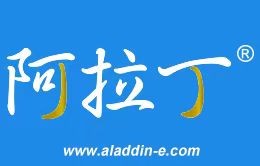








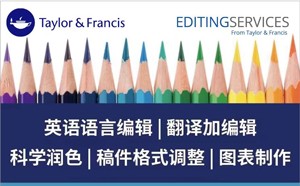


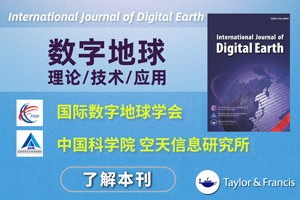
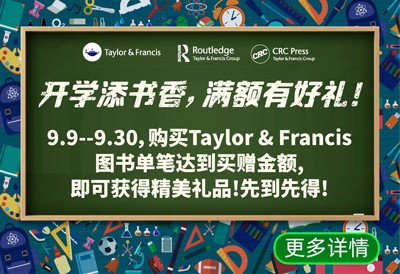

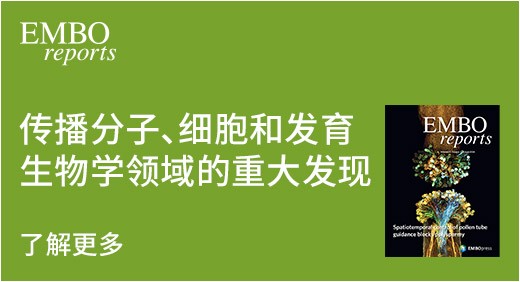
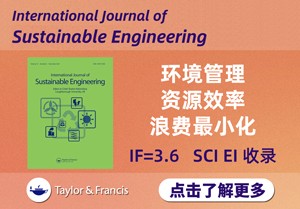

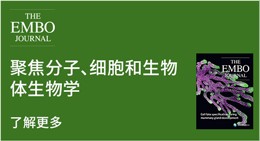
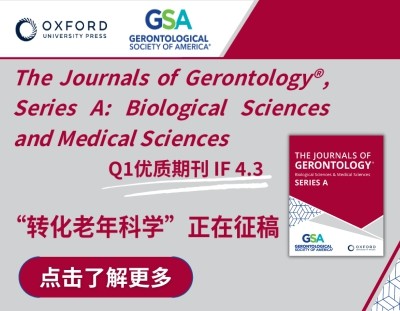
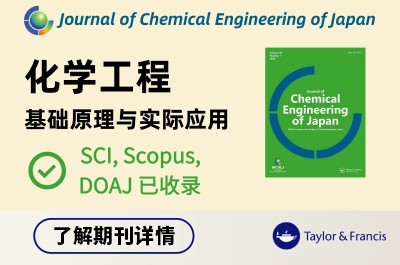


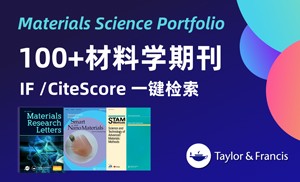
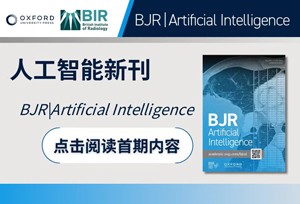




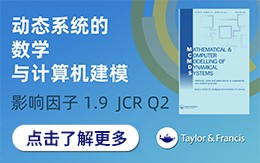
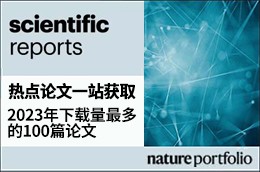
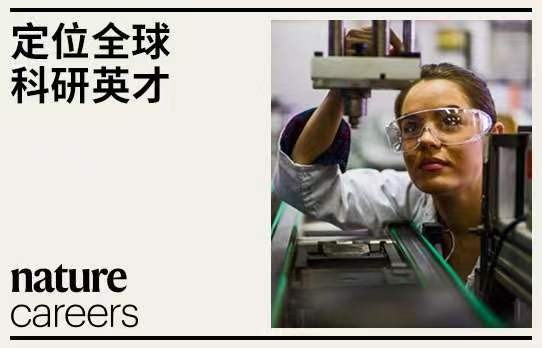
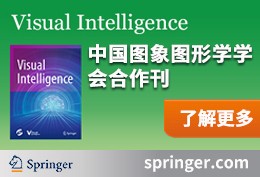
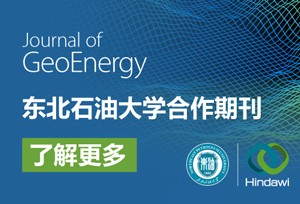
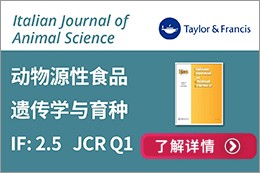



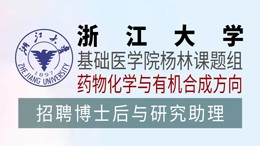


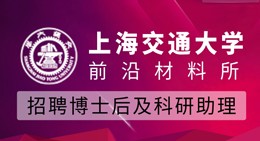
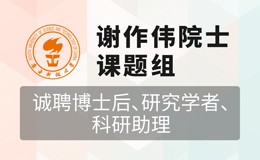

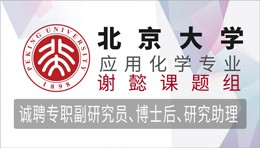




 京公网安备 11010802027423号
京公网安备 11010802027423号